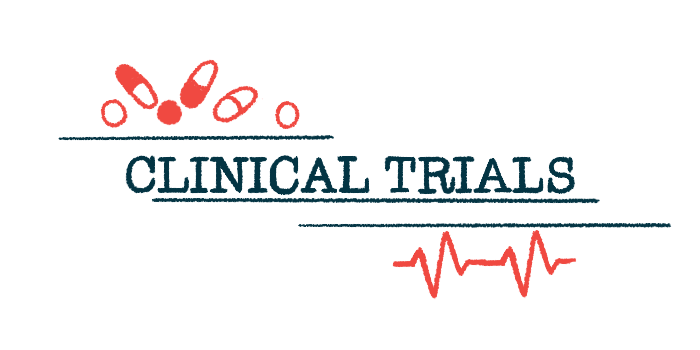New Phase 2 trial data show benefits of elafibranor for PSC
Drug approved in US as Iqirvo for treating adults with PBC
Written by |

Daily treatment with Ipsen’s elafibranor safely and effectively eases itching, stabilizes liver scarring, and reduces liver damage biomarkers in adults with primary sclerosing cholangitis (PSC), according to new data from a Phase 2 clinical trial.
Elafibranor is already approved in the U.S. and elsewhere under the brand name Iqirvo for treating certain adults with primary biliary cholangitis (PBC), another rare liver disease characterized by chronic cholangitis.
The new findings, from the Phase 2 ELMWOOD trial (NCT05627362), are the first to demonstrate the oral therapy’s potential for PSC — which has no approved treatment options to date. Ipsen will present the trial data at the European Association for the Study of the Liver (EASL) Congress next week in Amsterdam.
“These results are encouraging and reinforce elafibranor’s action … in potentially treating multiple liver diseases, like PSC,” Christelle Huguet, PhD, Ipsen’s executive vice president and head of research and development, said in a company press release.
Huguet said the findings are “a testament to our ongoing commitment to advancing potential treatments for rare liver diseases where there is a significant unmet need and few options for patients currently exist.”
Trial tested safety, efficacy of elafibranor in PSC patients
PSC is a chronic form of cholangitis, in which the tubes that carry the digestive fluid bile out of the liver — called the bile ducts — become inflamed. Such inflammation eventually damages them and results in slowed or stalled bile flow, a condition known as cholestasis.
Consequently, bile backs up into the liver, driving liver scarring, medically known as fibrosis, and injury over time. Bile acids, the main components of bile, also leak into the bloodstream, causing symptoms such as intense itching, or pruritus.
Elafibranor works to activate two peroxisome proliferator-activated receptors, or PPARs, which modulate cellular processes such as bile acid production, fibrosis, and inflammation.
By regulating these processes, the therapy aims to decrease bile toxicity and inflammation, thereby easing the symptoms and progression of liver diseases like PSC.
The drug is approved in the U.S., the European Union, and the U.K. as a second-line treatment for adults with PBC, another form of chronic cholangitis. It’s indicated for patients who have not responded sufficiently to or could not tolerate first-line treatment.
The Phase 2 ELMWOOD trial, conducted in North America and Europe, enrolled 68 PSC patients, ages 18-75. Each was randomly assigned to receive either one of two doses of elafibranor — 80 or 120 mg — or a placebo, taken as daily oral tablets for 12 weeks, or about three months. Participants were allowed to stay on stable doses of medications for pruritus.
The study’s main goal was to assess safety measures, while secondary goals included changes in blood levels of several markers of liver damage and fibrosis.
Treatment found to ease itching, stabilize liver scarring
The newly reported results indicated that the treatment was well tolerated. The frequency of adverse events was higher in the high elafibranor dose group (78.3% vs. 68.2% with the low dose and 69.6% with the placebo). However, no serious adverse events were reported with elafibranor. Meanwhile, 4.3% of those on the placebo experienced these events.
Also, nearly twice as many patients in the placebo group compared with the elafibranor groups experienced adverse events that led to treatment discontinuation (8.7% vs. 4.3%-4.5%).
After three months, either dose of elafibranor was associated with significant reductions in alkaline phosphatase, a liver damage biomarker, relative to the placebo. Moreover, improvements were seen as soon as a month after starting treatment. Similar observations were made for important markers of PSC progression, according to the company.
These data from the ELMWOOD trial are encouraging, demonstrating positive safety and efficacy data for elafibranor as a potential treatment for PSC, where none currently exist.
Elafibranor-treated patients also showed stabilizations in noninvasive markers of liver fibrosis after three months, as compared with those on the placebo. Those who received the high elafibranor dose experienced significant reductions in pruritus relative to those in the placebo group, as assessed with the Worst Itch Numeric Rating Scale.
“These data from the ELMWOOD trial are encouraging, demonstrating positive safety and efficacy data for elafibranor as a potential treatment for PSC, where none currently exist,” said Cynthia Levy, MD, a professor at the University of Miami Miller School of Medicine. “These findings support further investigation in larger longer-term trials to fully evaluate the potential of elafibranor in PSC.”
After completing the placebo-controlled part of ELMWOOD, participants could enter its open-label extension period, where all are receiving one 120 mg tablet of elafibranor per day for nearly two years. The trial is set to finish next year.
The therapy candidate was originally developed by the biopharmaceutical company Genfit, which licensed worldwide rights, except in certain Asian regions, to Ibsen in 2021.
In a separate press release, Pascal Prigent, Genfit’s CEO, said the company is “very pleased with Ipsen’s commitment to developing elafibranor.”
“The results from the ELMWOOD Phase 2 trial further reinforce our belief in elafibranor’s potential to address serious liver diseases,” Prigent said.




